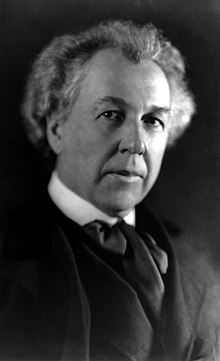- Fiction: Applying for a new credit card will only impact your credit score if you use the card.
Fact: Applying for new credit accounts for up to 10% of your credit score, even if you don't use the card. Frequently applying for new credit can hurt your credit score, so make sure you really need that new card before you apply for it. - Fiction: Paying less than the total minimum payment on your credit card bill doesn't count as a missed payment.
Fact: If you don't pay at least the total minimum payment on your credit card bill, your credit card company may report it as a missed payment. This can bring down your credit score and make it more difficult to qualify for credit in the future. Check your statement for the minimum amount due, and always pay it on time to keep your account current. And remember, paying more than the minimum amount due is a great way to pay down your debt. - Fiction: A high credit card limit is not a good thing.
Fact: Not necessarily. In fact, if you manage your credit cards wisely, a high credit limit can actually be advantageous. Thirty percent of your credit is based on your debt-to-credit ratio (the amount you owe in proportion to your total credit limit). If you have a high credit limit and you keep your balances low, your debt-to-credit ratio will also be low, so a higher credit limit can help you protect your good credit score. But this is only the case if you continue to keep your balances low. - Fiction: You must carry a balance on your credit cards to build a credit history.
Fact: You do need to use your credit cards to build a credit history, but that doesn't mean you must carry an unpaid balance. In fact, your best strategy is to use your credit cards and pay off the bill in full each month so you keep your overall debt-to-credit limit low. - Fiction: The more credit cards you have, the better.
Fact: You don't need to restrict yourself to just one card, but refrain from opening credit cards too frequently. The number of credit cards you carry makes up about 10% of your credit score, so having a large number of credit cards may negatively impact your credit score.
Thursday, September 5, 2013
Credit
Tuesday, September 3, 2013
Simple Interest, Compount Interest, Saving & What I learned from Ms.Austin
Simple Interest is interest payed on the principle alone.
What I learned from Ms. Austin:
I learned that if I put my money in savings and leave it there for a long time, over the years I will get money back just for keeping it there and if I have compound interest, the interest will keep increasing by the new interest amount.
Formula:
Compound interest is when interest is added to the principal of a deposit or loan.
Formula:
Savings: the money one has saved, esp. through a bank or official schemeWhat I learned from Ms. Austin:
I learned that if I put my money in savings and leave it there for a long time, over the years I will get money back just for keeping it there and if I have compound interest, the interest will keep increasing by the new interest amount.
Thursday, August 8, 2013
My Summer!
This summer I didn't really do much I relaxed, watched TV, and slept. In July I got a summer job at the Legal Defenders Office and I made copies, faxed documents, scanned, filed, and the typical office jobs. I didn't really do anything fun this summer due to the summer job but it gave me an opportunity to volunteer there during the year!
Thursday, May 10, 2012
3 favorite new cars
A 2008 Range Rover costs about $82,000 I would want to own one because it is safe and reliable.
A Ford F150 costs $43,600 I would want to own one because trucks are really pretty and the are reliable.
A Toyota Corolla costs $17,300 I want one because I prefer cars and its safe and reliable as well.
Car Buying Advice!
How to buy a used car:
When buying a used car its best to find out the history of the car (carfax.com), how many cylinders the car has(how much gas is needed), the fuel economy, reliability, safety ratings,consumer ratings, and of course the price.
Sites recommended for used cars:
-edmunds.com
-Cars.com
When buying a used car its best to find out the history of the car (carfax.com), how many cylinders the car has(how much gas is needed), the fuel economy, reliability, safety ratings,consumer ratings, and of course the price.
Sites recommended for used cars:
-edmunds.com
-Cars.com
Thursday, March 15, 2012
Frank Lloyd Wright
was an American architect, interior designer, writer and educator, who designed more than 1,000 structures and completed 500 works
Facts:
-Born June 18,1867
-Died on April 9th 1959 (age 91)
-Nationality American
-His work includes original and innovative examples of many different building types, including offices, churches, schools, skyscrapers, hotels, and museums
-He built the following houses:
People you would need in an architect firm:
clerk
construction workers
assistants
designers
A picture of his glass:
2 Pictures of his buildings:
Thursday, March 8, 2012
Sketch Up
Today I learned how to make a park with sculptures, people, restroom, anything you can thing of that goes in a park.
Subscribe to:
Posts (Atom)






